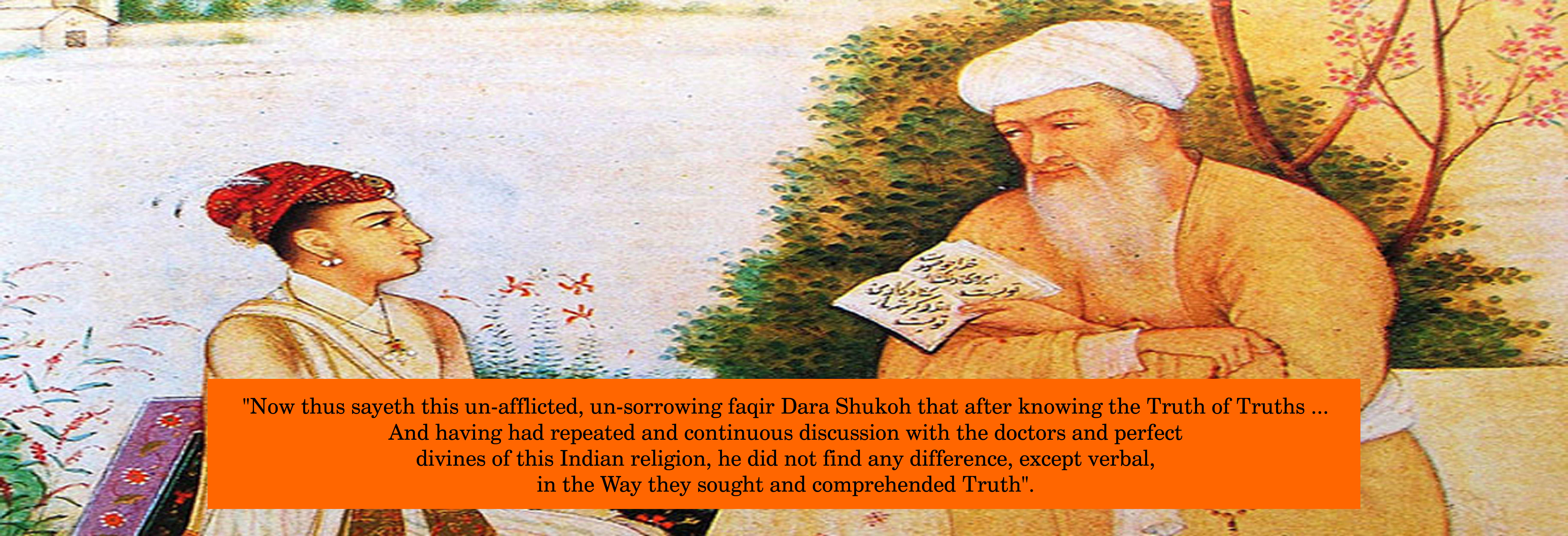
About Dara Shikoh
Dara Shikoh, aka Dara Shukoh, (1615 - 1659) was the eldest son and heir apparent of the fifth Mughal Emperor Shah Jahan. He was officially appointed as his successor. However, Dara was defeated by his brother Aurangzeb in the War of Succession following Shah Jahan's illness. Thus he was executed on the orders of Aurangzeb under a fatwa issued by his clerics stating that he had apostatised from Islam.
Compared to the orthodox Aurangzeb, Dara sits on the very opposite end of the spectrum. He held liberal and unorthodox views. He was inclined towards philosophy and mysticism since young age, and his endeavours in this field were evident, perhaps the most important of which is the book Majma' Ul-Bahrain, which highlights the harmonious unity between Sufi philosophy in Islam and Vedanta philosophy in Hinduism. Many historians to this day still argue about a different future for the Indian subcontinent if Dara Shikoh defeated Aurangzeb.
MAIN BENEFICIARIES
Scholars & Researchers
Independent and affiliated scholars & researchers from all around the world who are specialists in Dara Shikoh as their main area of interest as well as the Mughals, comparative study of religion, and interfaith dialogue
Students
Undergraduates, graduates, and postgraduates who are members of academic institutions (schools and universities) from all around the world studying Dara Shikoh in an aim to obtain higher degree of education
Non-Profit Organisations
All NPOs that are committed to the large humanitarian cause of promoting peace, harmony, and unity among groups of people, communities, and nations at large
Vision
Mission


This Project is pursuant to the recommendations of AMU Centenary Dara Shikoh Conference, held in Dec 2021, at New Delhi. Through this Project, the University aims to promote interfaith understanding, strive for National Integration by bringing religious communities closer and peace-building efforts among the followers of different faiths. By fostering a culture of liberal views and tolerance, developing the ideals of peaceful co-existence and pluralism among the young, particularly students, the University through its undertakings, such as this, wishes to promote peace and harmony.




